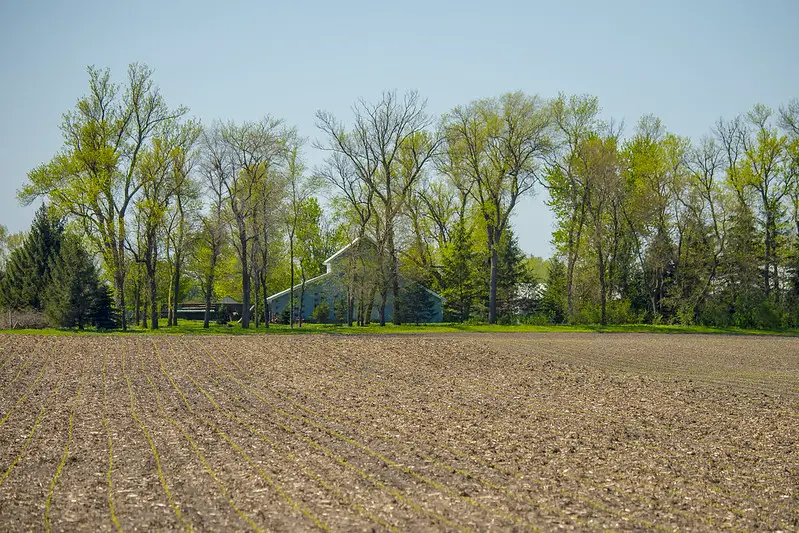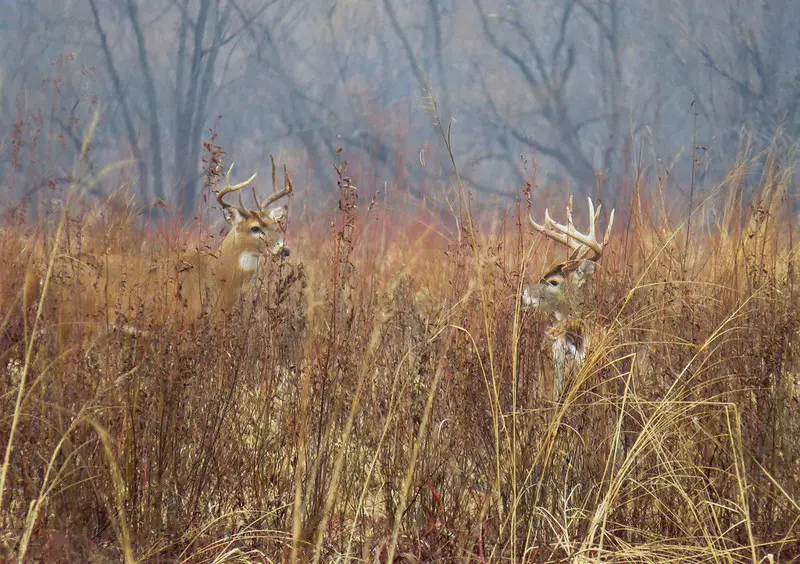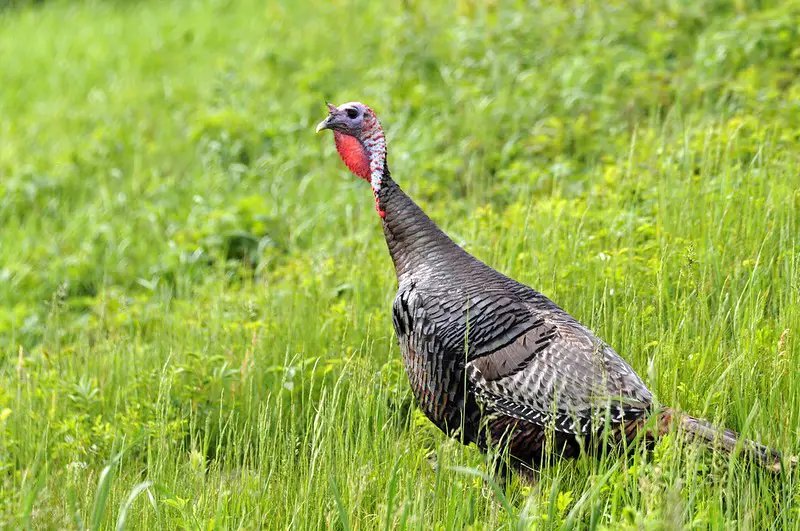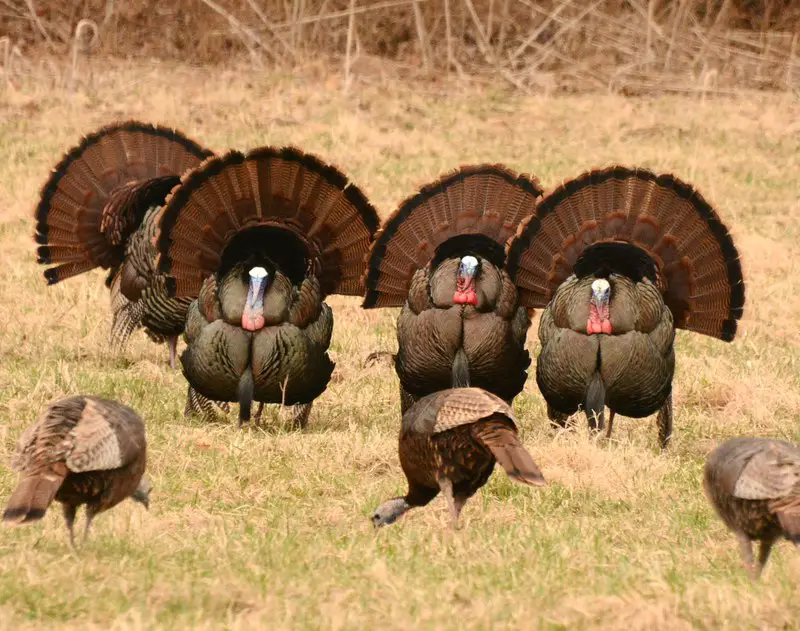
Famous for its big whitetails, Iowa also has a rich history of turkey hunting, dating back to the 1800s when settlers hunted them for food and sport.
Because of Iowa’s central location, Iowa is a drivable distance for many out-of-state hunters. Couple that with the fact that some of the heaviest toms in the country live here, and you can see why many would be interested in Iowa turkey hunting.
But before you start your great migration to the Hawkeye State, let me help you decide if Iowa is the right state for your turkey hunting adventure. I’ll give you a basic overview of the good, the bad, and the ugly of Iowa turkey hunting. I’ll then give you my tips for planning your hunt before closing out with your most frequently asked questions.
Note: While I try to provide the most accurate information possible, always refer to the official regulations published by the Iowa Department of Natural Resources before participating in any hunting activities.
Is Iowa a Good State for Turkey Hunting?
If you are a resident of Iowa with access to quality private lands, Iowa can be a very good state for turkey hunting. If you are a non-resident, obtaining a permit and finding a place to hunt can be a bit of a challenge. However, your chances of success aren’t bad if you do.
According to the Iowa DNR, about 11,500 turkeys are harvested every year. They estimate the hunter success rate at 20 to 22 percent. That’s actually pretty high!
Iowa’s hunter success rates are comparable to neighboring Eastern subspecies states like Wisconsin (18 percent in 2022), Minnesota (20.1 percent in Spring of 2021), and Illinois (19 percent in Spring of 2021).
Iowa residents should have no problem obtaining turkey permits. They are allowed two in the fall and two in the spring (though one spring permit must be for Season 4).
However, non-residents will find it much more difficult to hunt turkeys in Iowa. In fact, non-residents are not allowed to hunt Iowa turkeys in the fall at all. To hunt turkeys in the spring, non-residents will need to apply for a single permit in January.
Another drawback for non-residents and residents alike is the lack of public land in Iowa. According to Summit Post, only 2.8 percent of Iowa is public land. That’s the fourth lowest percentage of any state in the country.

Tips For a Successful Iowa Turkey Hunting Experience
As with any state, the biggest key to success when it comes to turkey hunting is being in the right place at the right time. You’ll see that all three of my Iowa turkey hunting tips involve getting you access to the hunting areas you need to be in to kill big gobblers.
1. If you’re a non-resident, start applying for a permit now.
Depending on the zone and season you apply for, you may not draw a turkey permit in your first year as a non-resident. That’s why you should apply for a preference point the year before you plan to go on your hunt (or even more).
Preference points will cost you $60.50. You don’t get preference points in years you don’t apply, but you don’t lose your points if you don’t apply for any given year.
Zone 4 permits (the zone with the most turkey habitat and turkey permits issued) are hard to draw a permit without a preference point. Some of the other zones you can draw on your first year, but keep in mind that you will probably need inside help from an Iowa resident to get access to areas with turkeys in these places.
2. Choose one of the zones with more public land and turkey habitat.
There are five turkey hunting zones numbered 4 through 8.
Zones 4 and 6 have the best turkey hunting habitat. The state also issues these two zones more turkey hunting permits than the other three zones.
Be sure to examine public land maps before you make your selection. If you plan to hunt public land, you will obviously want to choose a zone with as much accessible public land as possible.
If you have a muzzleloading shotgun, you can apply for the statewide permit. This is a good way to get a permit in your first year as there is usually less demand for these.
3. Consider hunting with an outfitter.
There are several reasons you might consider using an outfitter for Iowa turkey hunting. The primary reason is the lack of public land in the state. Going with an outfitter guarantees you access to coveted private land.
Another consideration is the fact that if you eat tag soup in Iowa, you may not be able to go back for a couple of years when you draw again. If you are chasing your US Super Slam, that could set you back in your quest quite a bit. Most of the outfitters in Iowa claim a 90 percent or higher success rate. Wouldn’t it be nice to go ahead and check that box and move on to the next state?
Based on the websites of some Iowa outfitters, guided turkey hunts are pretty affordable compared to other states. Usually, about a thousand dollars will get you three days of hunting, some lodging, and maybe even some meals. Of course, you still have to pay the pricey non-resident hunting license and turkey permit fees (prices listed below).

FAQs:
1) When is the Iowa turkey hunting season?
Iowa spring turkey season is divided up into a Youth Season, Season 1, Season 2, Season 3, Season 4, and a Resident Archery-Only Season.
Youth Season takes place on the three days prior to Season 1. Season 1 starts on the second Monday of April.
Seasons 1 through 4 run concurrently up until mid-May. The Resident Archery-Only Season runs the same time frame as Seasons 1 through 4.
Fall turkey season runs from early October to early December for gun and bow season. There are also two archery-only seasons. The first starts a week before gun and bow season and goes out in early December. The second starts in mid-December and runs to mid-January.
2) What is the bag limit for turkeys in Iowa? Can you get two turkey tags in Iowa?
Residents can shoot two turkeys in the spring (only one per day) and two turkeys in the fall. The non-resident bag limit is one bird in the spring (must apply for a permit).
3) How much does an Iowa turkey tag cost?
To legally hunt turkeys in Iowa, you must obtain a habitat stamp, a small game license, and a turkey permit. The costs are listed in the table below.
| License Type | Resident Cost | Non-resident Cost |
| Habitat Stamp | $15 | $15 |
| Small Game Hunting License | $22 | $131 |
| Turkey Permit | $28.50 | $119 |
4) What is the record turkey in Iowa?
According to the NWTF record book, Joe Voltmer killed the highest-scoring turkey for Iowa on May 15, 2021 in Ringgold. The bird weighed 26 pounds with a beard length of 10.125 inches and a longest spur of 1.25 inches. The total score was 118.4375.
The longest beard on record is 12.4375 inches killed by Easton Ferrill on May 1, 2021 in Henry. This bird also holds the record for the longest spur in Iowa at 1.875 inches.
Robert Maddocks killed the heaviest turkey in Iowa at 28 pounds. It was killed on April 12, 2022 in Mills.
5) Can non-residents hunt turkeys in Iowa?
As mentioned previously, non-residents can hunt turkeys in Iowa during the spring season only. Non-residents must also apply for a permit and be chosen in the draw for the permit.
6) What subspecies of turkey does Iowa have?
Iowa is home to the Eastern subspecies of turkey.
Final Thoughts on Iowa Turkey Hunting
Iowa can be a great place to bag a huge Eastern gobbler! On the other hand, it’s going to take some patience, money, and homework to do it as a non-resident.
If you want to hunt Iowa because you have family there or you need to get a bird there as part of your US Super Slam, then do what it takes to get a turkey permit and get to hunting. If you’re just looking for a state to kill an Eastern, I recommend checking out other states that have easier access and less expense.


